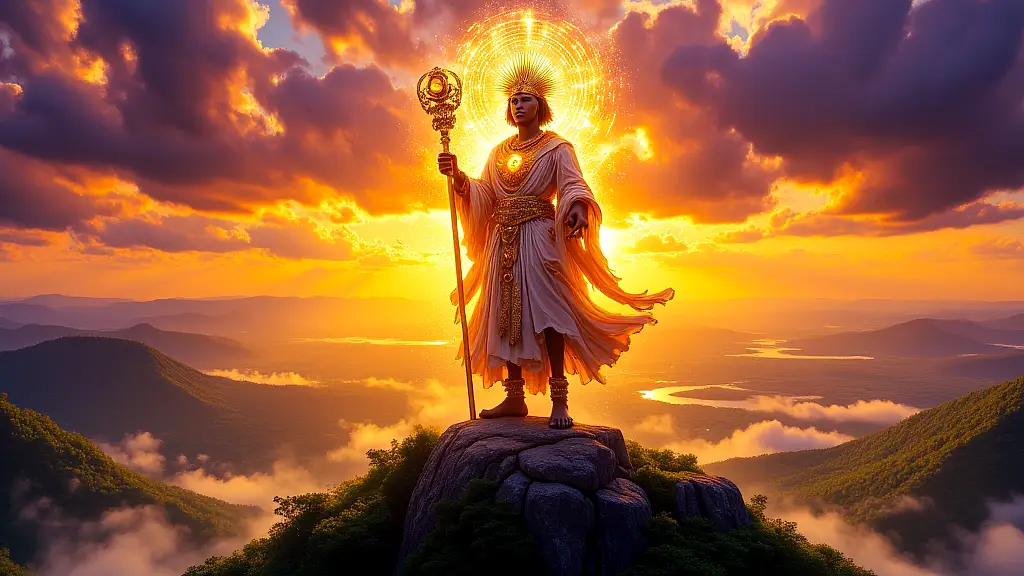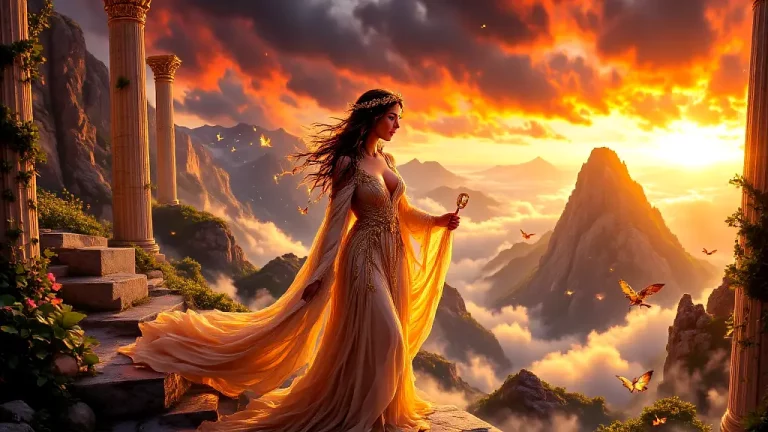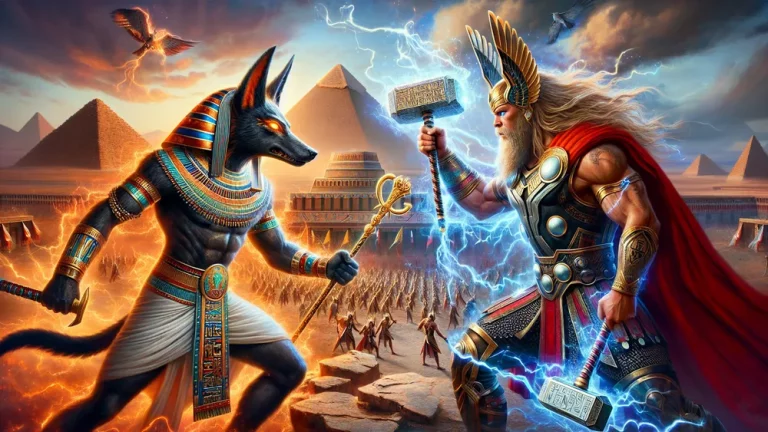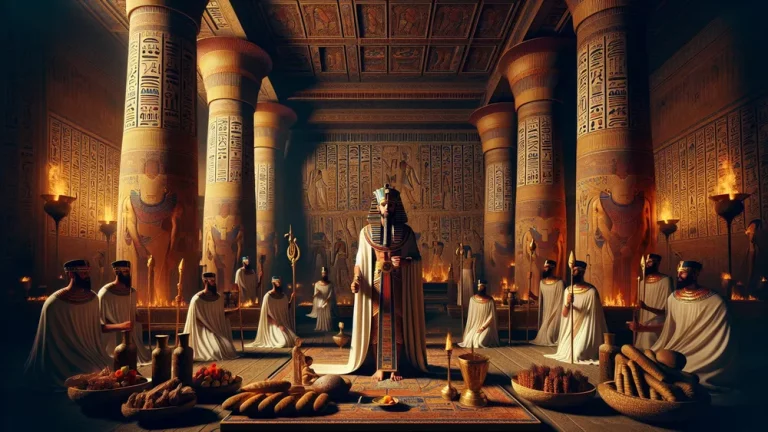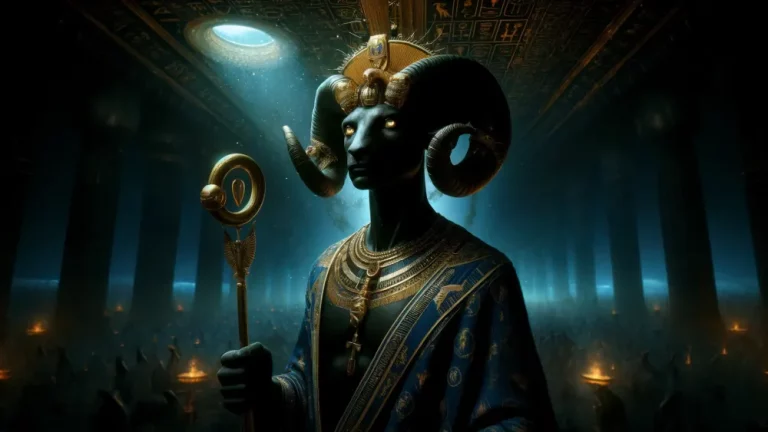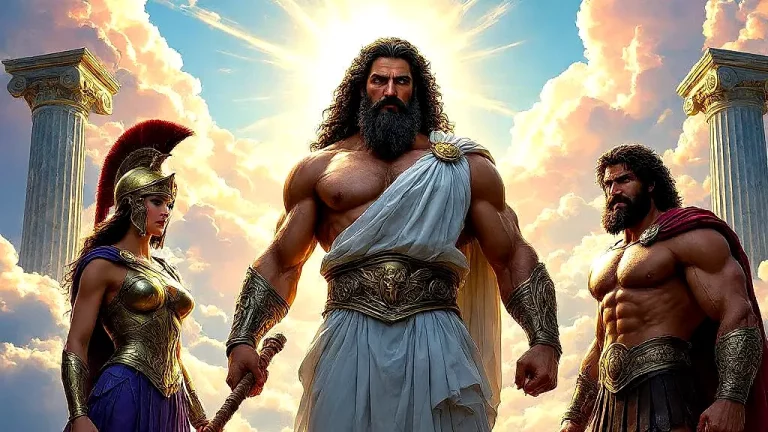Mwari: The African Creator Deity And Spirit Ruler
Picture a being with absolute power over ecosystems, rains, harvests, and even human lives. This is Mwari, the highest deity of the Shona people, ruling over creation and spirituality. Unlike gods who focus on just one area, Mwari’s authority covers creation, morality, and nature, serving as both architect and judge. They manage many roles at once, acting as a force behind life, weather, and ethical laws.
Key Points:
- Mwari is the top god for the Shona people, controlling nature, rain, and right and wrong.
- They speak through ancestors and spirit mediums, often in sacred places like Matonjeni Cave.
- Breaking Mwari’s rules, like disrespecting elders or mishandling rituals, can bring bad luck or disasters.
- Rain ceremonies involve dances, offerings like milk and beer, and sometimes sacrificing a black bull.
- Unlike some gods, Mwari is both a distant creator and involved in daily life, judging actions closely.
- Stories tell how droughts or other troubles happen when people ignore Mwari or act arrogantly.
- Mwari shares traits with other African gods but stands out for direct ties to moral laws and nature.
Despite their immense power, Mwari remains closely tied to daily life. People connect with them through rituals, ancestral guidance, and stories that warn against breaking traditions. In this post, we’ll explore Mwari’s origins, including their sacred cave at Matonjeni. We’ll also compare their influence to other African deities and explain how communities show respect – or risk angering this dominant force. Let’s begin with the basics.
Mwari: Overview and Key Facts
| Aspect | Details |
|---|---|
| Name and Role | Mwari, also called Mwali or uMlimo in Ndebele, is the highest god and spiritual leader for the Shona and Ndebele people. They judge actions, bring rain, and enforce moral laws. |
| Gender | Mwari’s gender is unclear, and it changes depending on local beliefs. Some see Mwari as genderless, while others use male terms. (More details in the FAQ.) |
| Powers | – Total control: Governs life, death, and nature, including droughts. <br> – Fertility: Influences rain, crops, and livestock. <br> – Moral laws: Punishes those who break traditions, like disrespecting ancestors. |
| Sacred Sites | The most important shrine is Matonjeni Cave in Zimbabwe, where Mwari speaks through spirit mediums. Other holy places include hills and forests. |
| Worship | – No fixed temples: People perform rituals outdoors or in holy places. <br> – Ancestral help: Requests to Mwari go through ancestors first. |
| Key Symbols | – Rainclouds: Show Mwari’s approval. <br> – Bull: Used in sacrifices. <br> – Milky Way: Some link it to Mwari’s presence. |
| Comparable To | Like other African creator gods (e.g., Nyame of the Akan, Chukwu of the Igbo), but Mwari has a stronger role in daily right and wrong. (More in “Mwari’s Place Among African Gods.”) |
Where Mwari Came From
To truly understand Mwari’s significance, we should examine their beginnings. This means looking at the Shona people’s ancient beliefs and discovering how they first came to worship this powerful deity.
Mwari in Shona Beliefs
In Shona tradition, Mwari is considered the supreme architect of everything. They created both the physical world and the moral order that governs it. Unlike gods with limited roles, Mwari’s authority covers all aspects of existence, from cosmic forces to daily life, keeping balance through divine will.
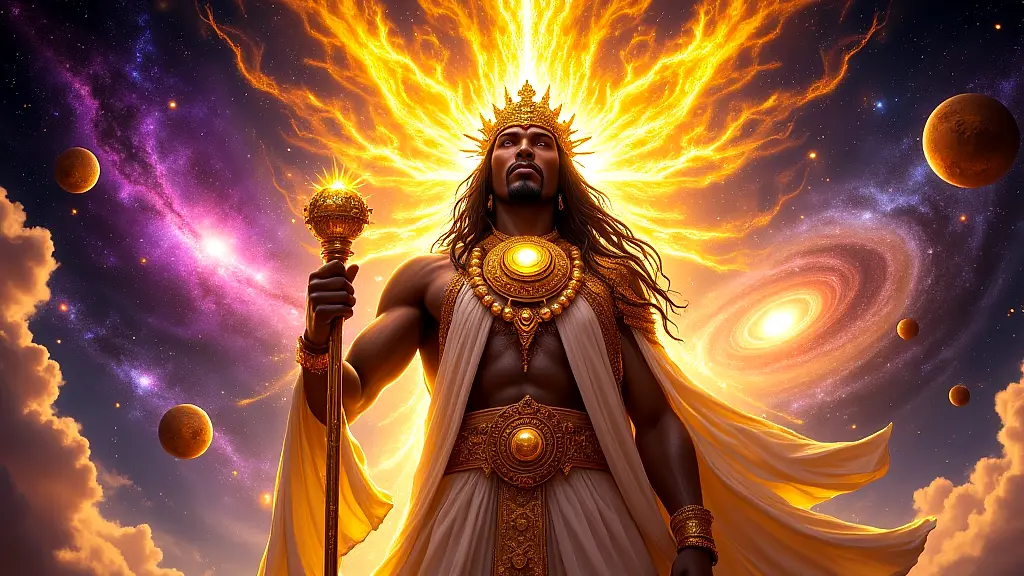
These are Mwari’s key characteristics:
- Complete power: Mwari’s authority surpasses all other spirits and extends to all things
- Rain and fertility: While ancestors may be asked for help, only Mwari controls when rains come
- Moral laws: Mwari determines taboos and social rules that people must follow
- Dual nature: Some traditions view Mwari as both a distant creator and personally involved in human lives
- Communication: Usually speaks through ancestors or spirit mediums rather than directly to people
Mwari is the all-powerful Shona creator who controls nature, sets moral rules, and connects with people through ancestors or spirits.
How People First Met Mwari
According to Shona oral traditions preserved for generations, Mwari first appeared during a terrible drought. When early communities struggled to survive, they heard a divine voice in the hills. Unlike sudden godly appearances in other cultures, Mwari’s revelation happened gradually, teaching people to recognize the divine in nature. The most important account describes a hunter who followed a strange voice to Matonjeni Cave in Zimbabwe’s Matobo Hills.
Inside the cave, Mwari spoke through natural echoes rather than dramatic signs like thunder. This showed that Mwari could communicate through earthly features. Some versions mention a bright light, while others describe only a powerful voice that taught proper worship methods. People later called this holy place “the site of ancestral wisdom,” believing the cave’s stones amplified Mwari’s words.
Today, Matonjeni remains the most revered pilgrimage site for Mwari followers, though only senior spirit mediums usually enter. The cave’s echoing chambers and natural springs help maintain its sacred status. While some Karanga clans tell of Mwari appearing near Great Zimbabwe, the Matonjeni story explains why certain rituals must happen there to preserve cosmic balance.
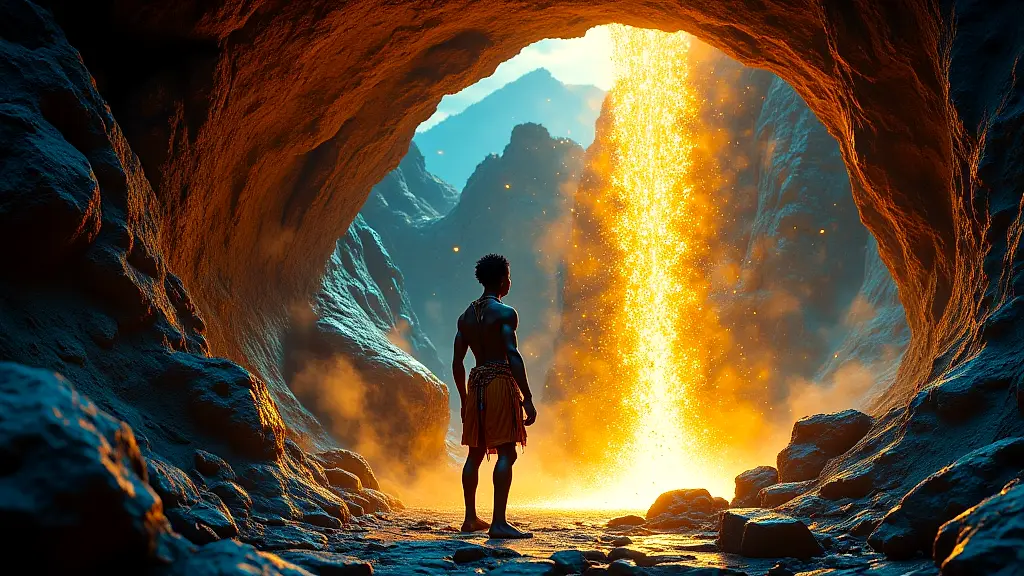
Mwari’s Incredible Abilities
Now that we’ve seen Mwari’s divine origins, let’s examine the powers that make this deity so deeply respected. These capabilities show why Mwari holds such a key position in Shona spiritual life.
Power Over the Natural World
In African beliefs, deities often manage nature, and Mwari shows this by completely controlling Zimbabwe’s ecological balance. Mwari creates and maintains the natural world. Farmers work the land, but Mwari decides if rain comes or drought occurs. This authority includes animal movements, plant growth, and even how sacred caves form.
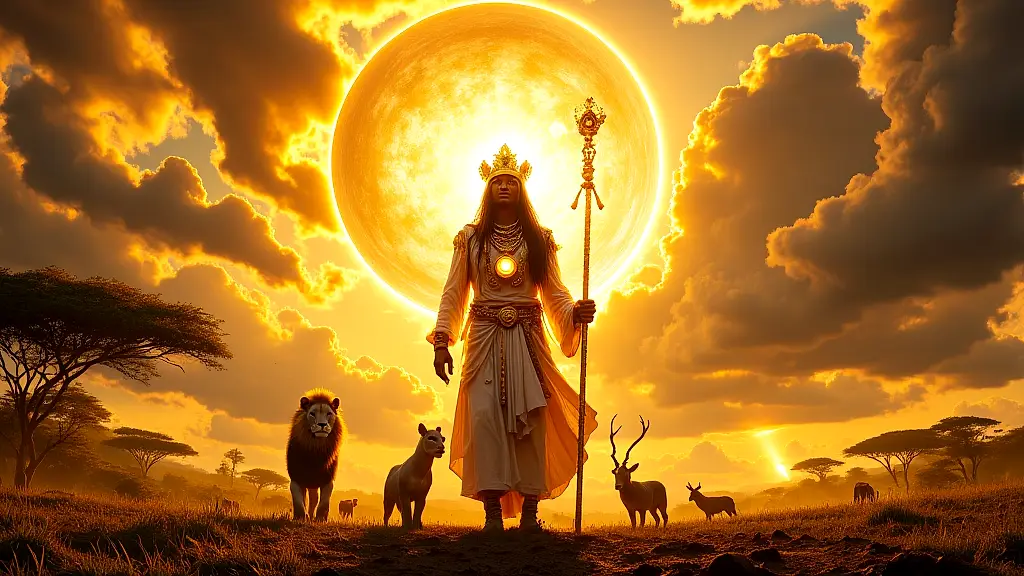
The table compares Mwari’s control with other major African creator gods:
| Domain | Mwari (Shona) | Nyame (Akan) | Chukwu (Igbo) |
|---|---|---|---|
| Rainfall | Direct control* | Uses lesser gods | Ala mediates |
| Fertility | Soil and people | Mainly humans | Affects communities |
| Natural Disasters | Uses as judgment | Rarely acts | Ancestors reduce impact |
| Sacred Landscapes | Matonjeni Cave | Sky kingdom | No specific place |
- Mwari sometimes uses lesser spirits for rain
Some areas focus more on crops, others on people
The Story of the Great Drought
The most significant show of Mwari’s power involves the Great Drought, which happened when communities grew arrogant and stopped proper worship. Villages claimed they didn’t need divine help because their granaries were full. Then Mwari stopped the rain because the people showed disrespect, and let the sun dry out the land completely. Cattle became thin, rivers disappeared, and even baobab trees lost all their leaves.
For three growing seasons (some say seven), elders tried every ritual they knew. They danced, chanted, and sacrificed livestock, but no rain came. Their attempts failed because they focused on ceremonies rather than true change. Mwari wanted real humility, not just correct rituals. The drought worsened because the people took pride in their harvests but forgot their duties to maintain peace, respect elders, and follow traditions.
The drought ended when a humble spirit medium had a vision. It told the people to go to Matonjeni Cave with specific gifts: white cloth, millet beer, and a perfect black bull. These items stood for purity, food, and sacrifice. When presented with proper reverence, they repaired the broken relationship with Mwari. As the ritual finished, people heard thunder but saw no lightning. Rain began that night.
This story warns that Mwari punishes arrogance, but shows mercy when people truly change their ways.
Mwari’s Place Among African Gods
Now that we’ve seen Mwari’s strong control over nature, let’s analyze where this deity stands among African beliefs. Looking at these connections shows what’s special about Shona theology, while also highlighting beliefs found throughout Africa.
Mwari Compared to Other Creator Gods
African beliefs show how cultures view creator gods differently. When we compare Mwari to Amun-Ra and Olorun, we see both unique and shared traits. Mwari uses oracle communications in caves and speaks through ancestors, while Amun-Ra needed complicated temple ceremonies with priests. Olorun remains so distant that people worship through lesser gods instead.
These different ways gods interact show how cultures answer the same basic question about relating to creation.
Key points of comparison:
- Creation Methods
- Human Interaction
- Gender Representation
Note: Some Shona stories describe Mwari with both male and female traits, especially for farming
The Link Between Ancestors and Mwari
In Shona beliefs, ancestral spirits (vadzimu) act as go-betweens for people and Mwari. These spirits are usually recent family members who lived good lives. They keep this important link by watching over people, sending warnings in dreams, and telling Mwari what the community needs.
When families honor ancestors properly through rituals like kurova guva (bringing the spirit home), they keep this channel open so Mwari’s help keeps coming. Here’s what happened when one village broke this link. They stopped their yearly ancestor ceremonies, thinking they were old-fashioned. Soon their crops failed even with rain, children got sick, and hunters found no game.
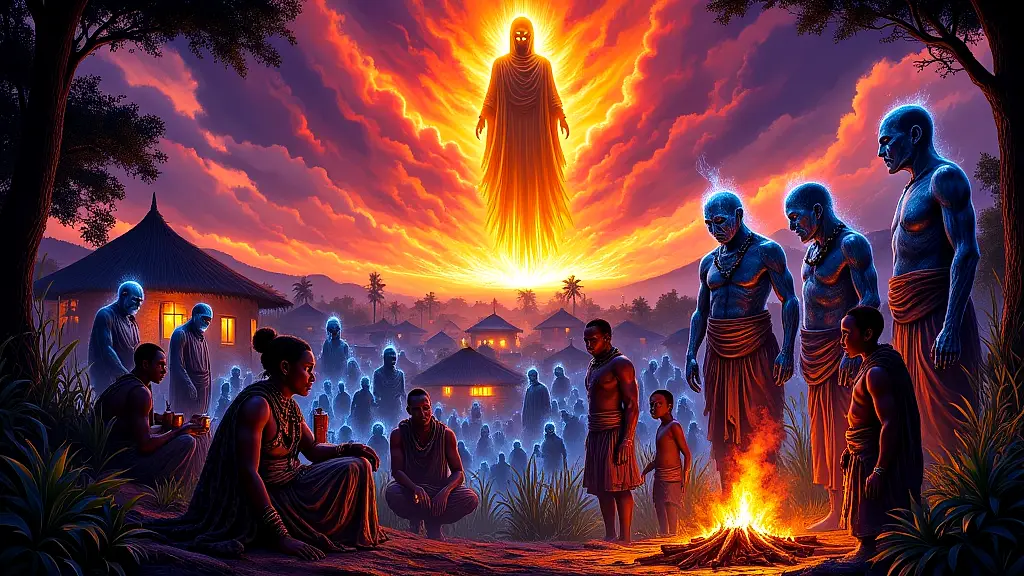
The village leader went to a n’anga (healer), who saw their ancestors crying at the spirit world’s edge. They couldn’t deliver prayers because no rituals welcomed them. Mwari saw this neglect as disrespect to the whole system, which stopped Mwari’s help from coming. They fixed it with a three-day ceremony that required making traditional beer, killing a red rooster (for new beginnings), and naming ancestors back through time.
People felt cool winds and heard faint laughter – signs the ancestors returned. Within weeks, the situation improved quickly. This story explains why Shona families still keep ancestor shrines and follow ritual rules today.
Neglecting ancestor rituals cuts off the vital connection to Mwari, leading to problems until proper ceremonies restore the link.
How People Honor Mwari
Now that we know Mwari’s role, let’s look at the actual practices people use. These traditions show how worship works in everyday Shona spiritual life.
The Ceremony to Bring Rain
When the dry season gets worst, villages in Zimbabwe hold the Mukwerera rain ceremony. They plan it carefully for when rains should come. At dawn, everyone gathers near a sacred baobab tree or hilltop. The village leader and a svikiro (spirit medium who speaks for Mwari) lead them. People bring special gifts: fresh milk in clay pots for purity, homemade beer showing community work, and white cloth strips for unity.
Children collect special grasses while elders check the ritual area to make sure no fights spoil the sacred space. First, women dance with zvipani (ankle rattles). Their steps look like rain falling as they sing old songs passed down for generations. Then the svikiro goes into a trance and speaks for Mwari. Meanwhile, the headman gives the offerings in a set order.
He pours milk on a flat stone altar first, then sprinkles beer toward north, south, east and west. A perfect black bull waits nearby as the village’s sacrifice. The most exciting part comes when the svikiro suddenly falls down, then gets up speaking in a deep, strange voice. This is believed to be Mwari answering directly. During this time, the medium gives clear instructions.
These might point out village problems stopping the rain or say what other rituals are needed. People answer with call-and-response chants of “Mwari vanonzwa!” (God hears us!), and they carefully note each instruction. Finally comes the sacrificial slaughter. They mix the bull’s blood with sacred herbs and spread it on fields. People leave quietly and respectfully. They watch for clouds, which usually come within days.
Some traditions say if the village needs more cleansing, rains might take up to three weeks.
Rules and Consequences
In Shona tradition, Mwari’s rules keep everything in order. Even small mistakes can cause big problems because everything is connected. Old stories tell what happens when people break these rules. One village made fun of a disabled beggar, and the next day they woke up with twisted limbs too.
Another story tells of a hunter who killed a pregnant antelope, and later his wife couldn’t have children. These things happen because the spiritual world responds directly to people’s actions.
The most important rules include:
- Disrespecting elders: Speaking badly to grandparents can bring generational curses
- Breaking hospitality laws: If someone refuses shelter to travelers, drought might come
- Mishandling sacred objects: Touching ritual items without purification may cause mental illness
- Violating gender roles: Women going into men’s initiation areas could lead to infertility
- False oath-taking: Lying during important promises might make lightning strike you
Note: Some clans add specific prohibitions like whistling at night or crossing rivers during certain moon phases
Pantheon of African Deities
Mwari is most important in Shona beliefs. But African mythology has many different kinds of gods and spirits from various cultures. These include the orishas of Yoruba tradition and the old gods of Egypt. If you want to learn more about these spiritual figures, here’s a complete list of all the African Gods that shows their remarkable variety across the continent.
FAQs
1. Is Mwari male or female?
Mwari’s gender is often interpreted as genderless or beyond human categorization, though some traditions associate the deity with masculine traits.
2. How is Mwari different from the Christian God?
Mwari differs from the Christian God by being deeply tied to natural forces and ancestral mediation, whereas Christianity emphasizes a singular, transcendent deity with a personal relationship to believers.
3. Are there temples dedicated to Mwari?
Temples dedicated to Mwari are not common, as worship traditionally occurs in sacred natural sites like caves and mountains.
4. What animals are sacred to Mwari?
The animals sacred to Mwari include the lion, eagle, and python, revered as symbols of divine power and protection.

